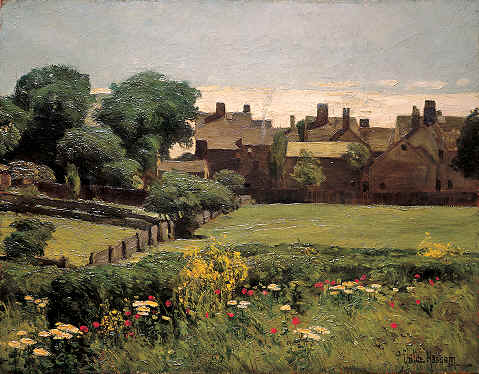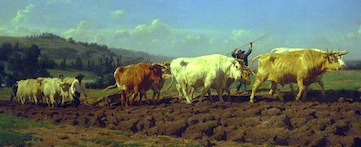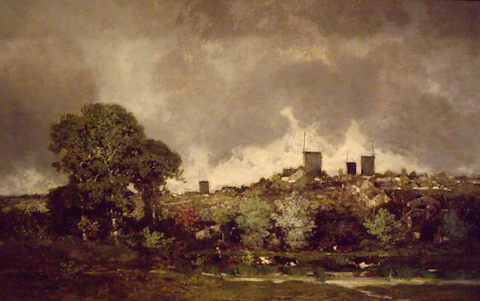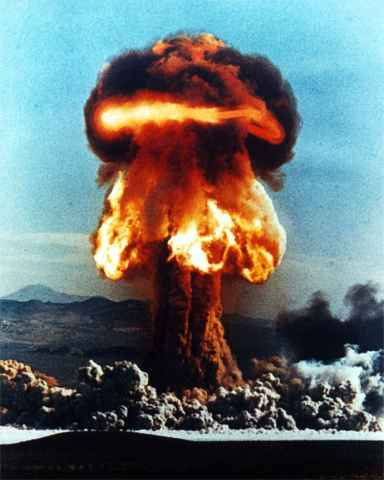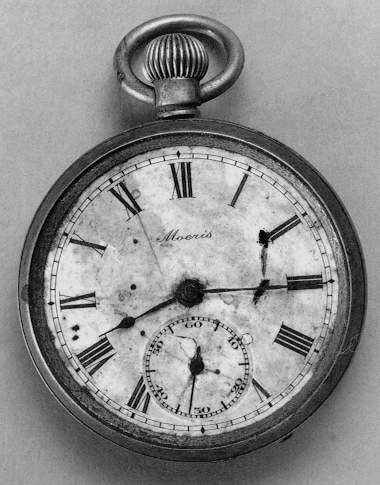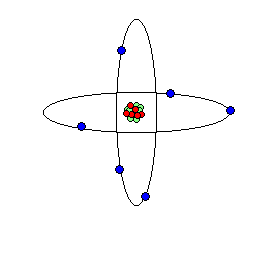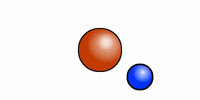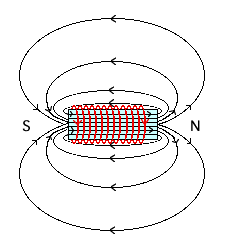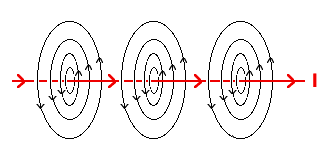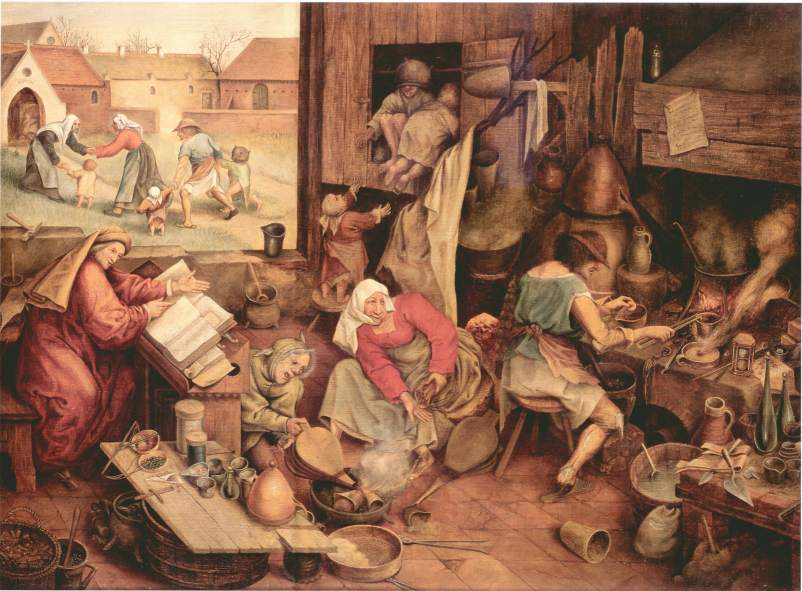From the 1400 on, but in the 1600s particularly, we see the use of words we often rely upon today to analyze the world.
Acre | Atomic | Electronic | Electric | Ludicrous | Magnesia | Magnesium | Obscure words | Tome

acre
O. E. {or olde English] æcer "tilled field, open land," from Proto-.Germanic. *akraz "field, pasture" (cf. olde Norse. akr, olde Saxon. akkar, olde Frisian. ekker, Middle Dutch. acker, Dutch. akker, olde High German. achar, German. acker, Gothic. akrs), from PIE – Proto Indo-European
*agro- "field" (cf. Latin. ager "field, land," Greek. agros, from Sanskrit. ajras "plain, open country").
Originally in English without reference to dimension;
- in late olde English the amount of land a yoke of oxen could plow in a day,
- afterward defined by statute as a piece 40 poles by 4, or an equivalent shape (5 Edw. I, 31 Edw. III, 24 Hen. VIII).
A yoke of oxen depicted plowing fields,
Ploughing in the Nivernais, Rosa Bonheur, oil on canvas,1849.
Agrarian, agronomy, agricultural are derived from acre.
The [standard English] measure of a field or area of a piece of land or real estate parcel.
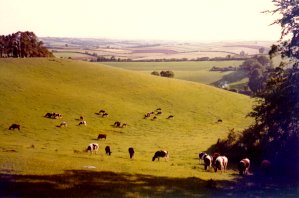
The size of a field's area is measured in acres or fractions of an acre. Cattle graze in pastures and slaves work planting sugarcane in a field.
Acre | Atomic | Electronic | Electric | Ludicrous | Magnesia | Magnesium | Obscure words | Tome
Atomic
Atoms – late 15c., as a hypothetical indivisible body, the building block of the universe, from L. atomus 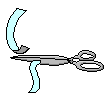 (especially in Lucretius) "indivisible particle,"
(especially in Lucretius) "indivisible particle,"
from Greek. atomos "uncut, unhewn; indivisible," from a- "not" + tomos "a cutting," from temnein "to cut" (see tome).
![]() An ancient term of philosophical speculation (in Leucippus, Democritus), revived 1805 by British chemist John Dalton. Atom, the smallest indivisible unit of which the material world is built up by electrochemical forces.
An ancient term of philosophical speculation (in Leucippus, Democritus), revived 1805 by British chemist John Dalton. Atom, the smallest indivisible unit of which the material world is built up by electrochemical forces.
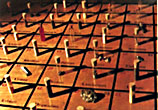 The table of atomic elements theorized and confirmed in part by Dimitri Mendeleev.
The table of atomic elements theorized and confirmed in part by Dimitri Mendeleev.
In late classical and medieval use also a unit of time, 22,560 to the hour.
Atom bomb is from 1945 as both a noun and a verb; cf. atomic.
Atomize–"reduce to atoms," 1845; "reduce a liquid to a very fine mist," 1865, verb formed from atom + -ize.
Related: Atomized; atomizing. Originally in reference to medical treatment for injured or diseased lungs;
The sense of "to destroy with atomic weapons" is from 1945. The watch above records the precise moment the atomic bomb over Hiroshima detonated killing thousands instantly that August morning.
Acre | Atomic | Electronic | Electric | Ludicrous | Magnesia | Magnesium | Obscure words | Tome
Electronic
from electric and ion : electr-ic + i-on = electron, electronic
Electric meaning a property exhibited by amber. The word dates from 1640s, first used in English by physician Sir Thomas Browne (1605-1682), apparently coined as Modern Latin electricus (lit. "resembling amber") by English physicist William Gilbert (1540-1603) in treatise "De Magnete" (1600).
The term is from the Latin word electrum for "amber," from Greek. elektron "amber" (Homer, Hesiod, Herodotus), also "pale gold" (a compound of 1 part silver to 4 of gold); of unknown origin.
If you were to rub amber on a suitable fabric, you can generate a spark of static electricity.
Originally the word described substances which, like amber, attract other substances when rubbed. Meaning "charged with electricity" is from 1670s; the physical force so called because it first was generated by rubbing amber.
In modern instances, often the word "electric" is short for electrical.
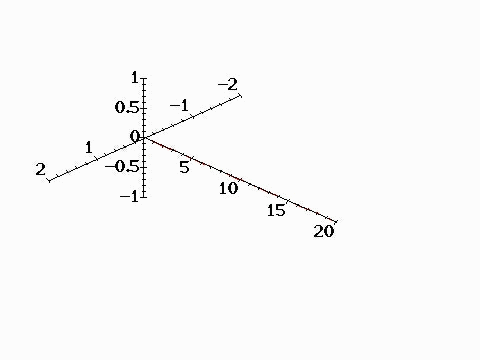 These electromagnetic waves propagate from atoms in such a way that electric waves are perpendicular to waves creating a magnetic field.
These electromagnetic waves propagate from atoms in such a way that electric waves are perpendicular to waves creating a magnetic field.
Figurative sense is attested by 1793. Electric toothbrush first recorded 1936; electric typewriter 1958.
Acre | Atomic | Electronic | Electric | Ludicrous | Magnesia | Magnesium | Obscure words | Tome
The word ludi refers to games, of the game or games. See ludicrous.

Acre | Atomic | Electronic | Electric | Ludicrous | Magnesia | Magnesium | Obscure words | Tome
The Alchemist or Alchemist's Room, oil on canvas, private collection
Pieter Breughel the Elder, 1559-60.
Magnesium – perhaps the single most important trace element for plants and people.
The word is from the late 14c., in alchemy, "main ingredient of the philosopher's stone," from M.L. magnesia, from Greek. (he) Magnesia (lithos) "the lodestone," lit. "(the) Magnesian (stone)," from Magnesia, region in Thessaly, which is said to be named for the native people name Magnetes, which is of unknown origin.
The ancient word, in this sense, has evolved into magnet. But in ancient times the same word, magnes, was used of lodestone as well as of a mineral commonly used in bleaching glass (modern pyrolusite, or manganese dioxide).
In Middle Ages there was some attempt to distinguish lodestone as magnes (masc.) and pyrolusite as magnesia (fem.). Meanwhile, in 18c., a white powder (magnesium carbonate) used as a cosmetic and toothpaste was sold in Rome as magnesia alba ("white magnesia").
It was from this, in 1808, that Sir Humphrey Davy isolated magnesium. He wanted to call it magnium, to stay as far as possible from the confused word magnesia, but the name was adopted in the form magnesium. Meanwhile from 16c. the other name of pyrolusite had been corrupted to manganese, and when, in 1774, a new element was isolated from it, it came to be called manganese.
Magnesia in its main modern sense of "magnesium oxide" (1755) is perhaps an independent formation from L. magnes carneus "flesh-magnet" (c.1550), so called because it adheres strongly to the lips.
tome, the section of a book, c. 1610; to cut a piece off of something, from the Greek.
Acre | Atomic | Electronic | Electric | Ludicrous | Magnesia | Magnesium | Obscure words | Tome

Words used | Geological time scale | necessary facts about words
Dictionary | Vocabulary | Advanced Vocabulary | Words | fact v. fiction | Rare words | theme vs thesis | antonyms | dialectic | obscure words
Writing | writing from texts | how to approach writing | writing papers
Research sites | nature home | technology home | Non Govern Organizations


